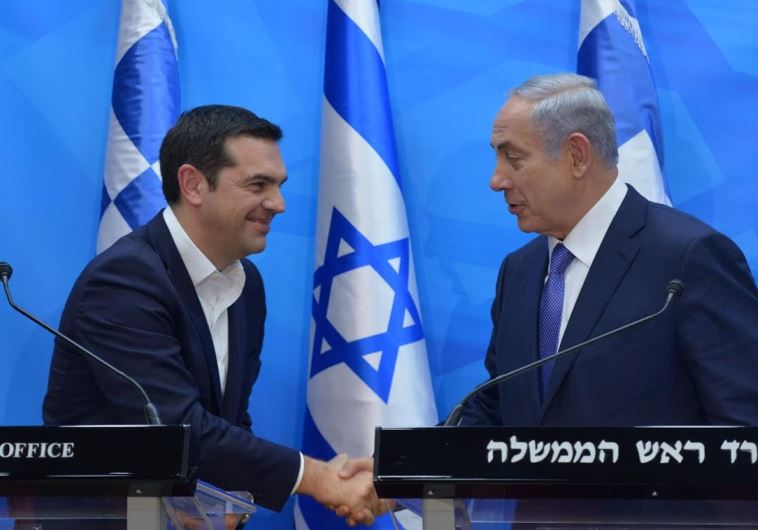Israel, Greece, Cyprus likely to hold 3-way gas summit in January
Greek Prime Minister Alexis Tsipras meets Wednesday with Prime Minister Benjamin Netanyahu in Jerusalem.
 Prime Minister Benjamin Netanyahu (L) and Greek Prime Minister Alexis Tsipras, November 25, 2015(photo credit: KOBY GIDEON/GPO)Updated:
Prime Minister Benjamin Netanyahu (L) and Greek Prime Minister Alexis Tsipras, November 25, 2015(photo credit: KOBY GIDEON/GPO)Updated: